STATEHOUSE REPORT | ISSUE 21.28 | JULY 15, 2022
BIG STORY: Battle over abortion to be decided by state courts
NEWS BRIEFS: S.C. group hails state’s decision on digital currency literacy
LOWCOUNTRY, Ariail: Overturning the past
COMMENTARY, Brack: New book is uncomfortable but important read
SPOTLIGHT: S.C. Hospital Association
FEEDBACK: State needs write-in campaign
MYSTERY PHOTO: Old church
Battle over abortion to be decided by state courts
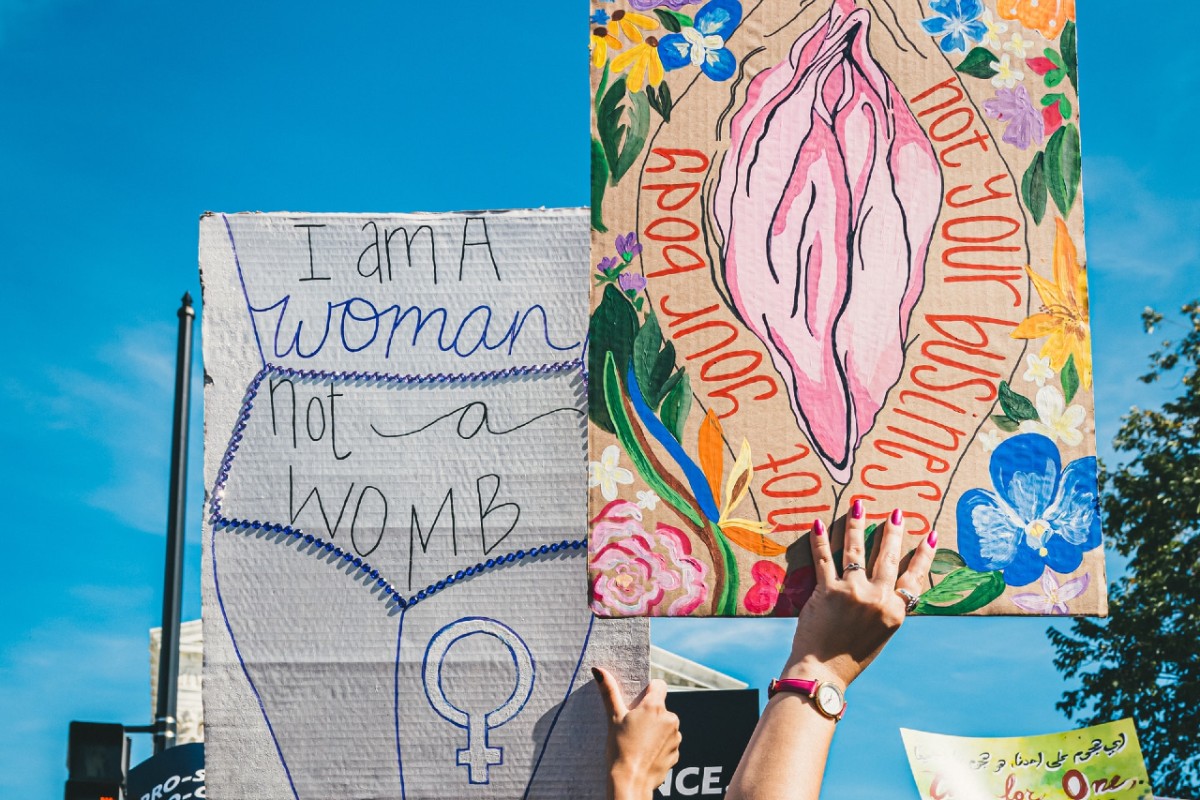
By Andy Brack, editor and publisher | As state lawmakers consider abortion proposals that are more restrictive than a 6-week fetal heartbeat ban now in place in South Carolina, abortion rights supporters have turned to state courts to protect women’s reproductive health through the state’s constitutional right to privacy.
“There is a reasonable expectation [in the state constitution] for the right to privacy to extend to the body and decisions about your body,” said state Sen. Brad Hutto, an Orangeburg Democrat who serves as the Senate minority leader. “A judge is going to have to sort this out.”
On Wednesday, women’s health advocates filed a state lawsuit to challenge South Carolina’s new law limiting abortions. Meanwhile on July 19, abortion supporters and opponents are expected at the Statehouse to rally for and against an all-out abortion ban that being considered by a special House committee. A similar measure with no exceptions is expected to be taken up in August by a Senate committee.
A new lawsuit focuses on an old issue – privacy
At issue now in state court is the right to privacy as it relates to abortion.
When the U.S. Supreme Court issued its landmark Roe v. Wade decision in 1973, it found an implicit constitutional right to privacy. In other words, it said the U.S. Constitution protected access to abortion as because of a right to privacy. But on June 24 with the Dobbs v. Jackson Women’s Health Organization decision, it overturned the Roe precedent and sent decisions on abortion back to states.
South Carolina, like many states, had a pre-passed law triggering more restrictive abortion rules if Roe were overturned. In 2021, the S.C. General Assembly passed Senate Bill 1 to ban abortion when a fetal heartbeat was detected, which can be as early as six weeks after conception.
But that measure was challenged in federal court when Roe was still the law of the land. A federal judge issued an injunction to keep the law from being enacted based on the constitutional right to privacy about women’s health decisions. An appeals court upheld a challenge.
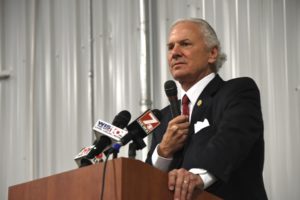
Almost immediately after the high court overturned Roe, S.C. Gov. Henry McMaster filed a motion to lift a federal injunction for the Senate Bill 1. The federal court granted the motion June 27 and the fetal heartbeat law went into effect.
Now, Planned Parenthood and other plaintiffs are asking state courts to block the new law on essentially the same grounds —the right to privacy. But the difference now is that while the U.S. Constitution’s right to privacy is implied, the state’s right to privacy is guaranteed and explicit in the state constitution.
According to Article 1, Section 10 of the S.C. Constitution (emphasis added):
“The right of the people to be secure in their persons, houses, papers, and effects against unreasonable searches and seizures and unreasonable invasions of privacy shall not be violated…”
According to Planned Parenthood, the new lawsuit asks “a state trial court to block the [fetal heartbeat] law on the grounds that it violates South Carolinians’ constitutional rights to privacy and equal protection by banning abortion, by providing inadequate protections for patients’ health, and by conditioning sexual assault survivors’ access to abortion on the disclosure of their personal information to law enforcement.”
In a statement, the organization added, “While Senate Bill 1 remains in effect, South Carolinians who need care past the earliest stages of pregnancy will be forced to travel out of state, seek abortion outside the health care system, or continue pregnancies against their will.”
Jenny Black, president and CEO of Planned Parenthood South Atlantic, characterized the law as something that “cruelly denies South Carolinians the power to make their own personal medical decisions. This fight is not new to us, and we know what’s at stake: Without court intervention, South Carolinians will continue to suffer in a state with dangerously high rates of maternal mortality and infant mortality, particularly among Black women and babies. We urgently need this court to reject Senate Bill 1 for what it is: a direct assault on our health care, our lives, and fundamental human rights.”
Reactions to the lawsuit
McMaster spokesman Brian Symmes today said the governor was confident the new law is “constitutionally sound and will prevail in court, and he will defend it every step of the way – just like he’s done in federal court.”
S.C. Attorney General Alan Wilson’s spokesman, Robert Kittle, said, “We expected this lawsuit and are prepared to defend the state’s laws.”

State Sen. Larry Grooms, the Berkeley County Republican who was lead sponsor of Senate Bill 1, told Statehouse Report, that Planned Parenthood’s lawsuit was not a surprise.
“As red and blue legislatures are now busy working on ways to tighten or expand abortion access, it should come as no surprise that state courts are now being called upon to redraw certain battle lines,” he said. “S.C. Planned Parenthood’s actions were expected and I suspect that it may take some time before the final dust is settled.”
Hutto agreed, noting that it could take a year or two for the case to be decided. In the interim, it’s a real possibility that a state court might issue an injunction on the state’s current fetal heartbeat law limiting abortion for the same reason that the federal court did – the question of the constitutional right to privacy, but this time, the one explicitly written in the state constitution.

“In my mind, it you’re going to cover anything [with a right to privacy], it ought to cover people’s bodies, but that’s why we have judges,” Hutto said.
Former Democratic Congressman Joe Cunningham said McMaster, his opponent in the fall election, had the most extreme position on abortion in the country.
“He has openly said he wants a total abortion ban with no exceptions for rape, incest or life of the mother. He has even expressed support for charging women and doctors with crimes for seeking an abortion.
“The fetal heartbeat bill is simply a backdoor ban which would require women to get an abortion before they even know they are pregnant. It’s a violation of a woman’s constitutional right to privacy and government overreach at its worst. When I’m governor, I will trust women to make their own healthcare choices and get politicians out of these extremely personal and private medical decisions.”
The S.C. Republican Party did not respond to a request for comment, but S.C. Democratic Party Chairman Trav Robertson said, “Henry McMaster and his Republican Party care more about the rights of rapists and child molestors than the victims of those horrendous crimes. Henry McMaster is focused on destroying the medical freedoms of women and sending doctors to jail.”
- Have a comment? Send to: feedback@statehousereport.com
S.C. group hails decision on digital currency literacy
Staff reports | Charleston business leaders have been urging elected state leaders to set regulatory guidelines for new technologies that are rapidly changing the way financial institutions operate. Following a recent win in funding, South Carolina lawmakers authorized the state treasurer to spend $500,000 to study digital currency literacy.

“The State Treasurer’s Office expects to provide valuable assistance and guidance to both government agencies and the citizens to help them better understand how a fully digital economy can be transformative to our state,” State Treasurer Curtis Loftis said in a prepared statement.
Blockchain technology is a computer-based, ongoing permanent ledger that records transactions and ensures each one is authentic. A digital asset is anything that has a value that can be stored on the blockchain as unique digital data such as a book, music, videos and photographs.
In other recent news:
Federal judge issues stay on Graham subpoena to testify. A South Carolina federal judge has issued a stay to block the execution of a subpoena compelling U.S. Sen. Lindsey Graham to testify to a special Georgia grand jury investigating election shenanigans in the 2020 presidential election. U.S. District Judge Henry Herlong will hold a hearing on the subpoena in Greenville on July 20. Graham has denied meddling.
![]() Murdaugh indicted on murder charges. South Carolina on Thursday indicted disgraced former powerful attorney Alex Murdaugh on two counts of murder for killing his son and wife after police re-examined their deaths. For more than a year, the Murdaugh murders on the family’s hunting estate has captivated the nation. Murdaugh’s lawyers issued a statement denying involvement in the murders, saying he had no motivation to kill them.
Murdaugh indicted on murder charges. South Carolina on Thursday indicted disgraced former powerful attorney Alex Murdaugh on two counts of murder for killing his son and wife after police re-examined their deaths. For more than a year, the Murdaugh murders on the family’s hunting estate has captivated the nation. Murdaugh’s lawyers issued a statement denying involvement in the murders, saying he had no motivation to kill them.
Gas prices fall below $4 a gallon in Greenville area. As South Carolina gas prices continue to drop, Greenville sees the lowest price per gallon in the last two months.
SC-1: Profile of Dr. Annie Andrews. Meet Dr. Annie Andrews, the Democratic nominee who is trying to oust GOP Rep. Nancy Mace in the state’s First District congressional race. A pediatrician, she says she embraces using science in decision-making.
State has 13,164 new Covid cases in past week. Health officials link rising cases in S.C. to new variants, prompting people to receive the vaccine and boosters. Meanwhile, the head of the World Health Organization says the pandemic is far from over.
Boroughs closer to becoming U.S. attorney. Adair Ford Boroughs, a one time congressional candidate, is one procedural vote away from becoming South Carolina’s U.S. attorney.
Port of Charleston finishes fiscal year with record cargo. After handling 1.58 million containers of cargo this fiscal year, Charleston’s port logged a record high amount of inbound cargo and a 22% jump in imported goods.
Magazine names Charleston No. 1 city for 10th consecutive year. Travel + Leisure magazine has named Charleston the number one city in the word, and number 23 on the list of best cities in the world (the only U.S. city to make the list).
Nearly 4,000 children in S.C. foster care. Some 3,945 kids are currently in custody of the S.C. Department of Social Services. It’s the lowest number in the past five years, but still a strain on workers and foster parents.
Overturning the past
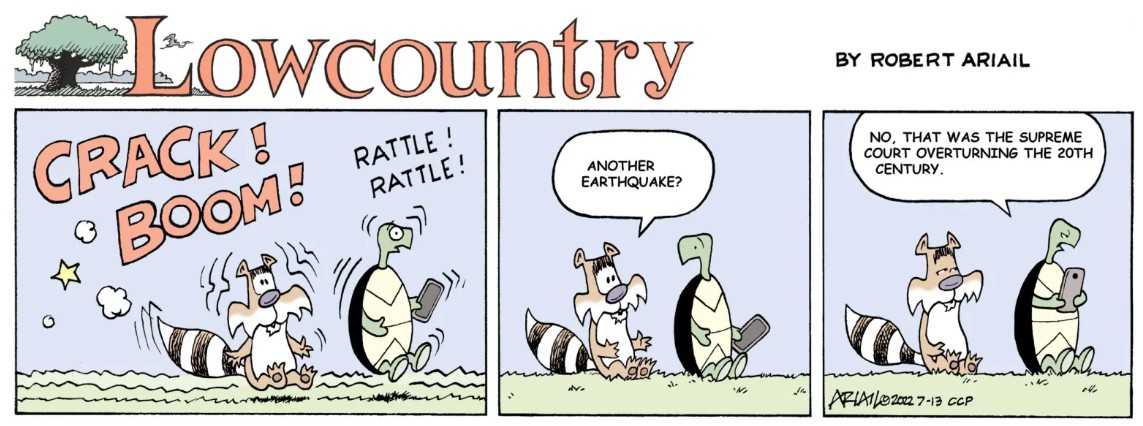
Cartoonist Robert Ariail often interprets things a little differently, but always has an interesting take on what’s going on in South Carolina. Love the cartoon? Hate it? What do you think: feedback@statehousereport.com.
New book is uncomfortable but important read
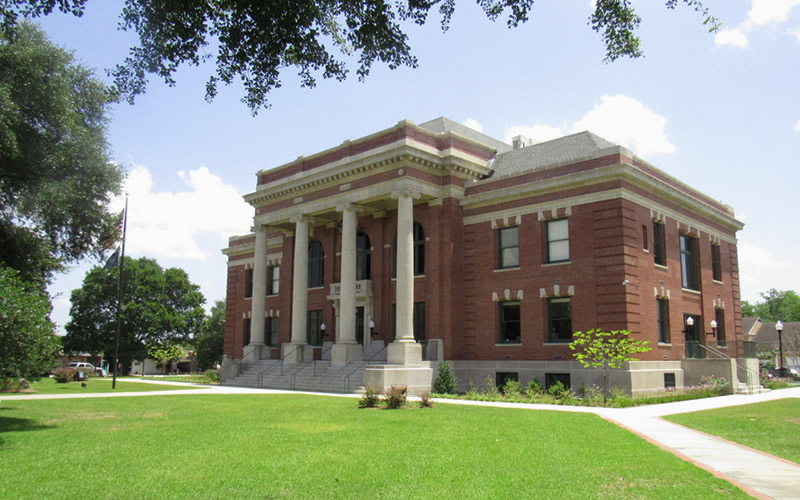
By Andy Brack | If South Carolina-born author Baynard Woods had his way, you would only read his name these days with a line through it like this: Baynard Woods.
 But newspaper style is to be clear in writing, not to obfuscate, which is what a strikethrough does. Woods, however, uses the device in his new book to make a clear point – by striking through his name, he’s acknowledging the racial ills attached to his family from the past that he can’t escape while highlighting how it’s important for us all to move beyond race.
But newspaper style is to be clear in writing, not to obfuscate, which is what a strikethrough does. Woods, however, uses the device in his new book to make a clear point – by striking through his name, he’s acknowledging the racial ills attached to his family from the past that he can’t escape while highlighting how it’s important for us all to move beyond race.
“I needed a way to reject my family’s role in the history of slavery without denying it,” Woods explained in a July 8 piece in The Washington Post about the new book, “Inheritance: An Autobiography of Whiteness.”
If you live in New Hampshire, Oregon or Utah, this is a difficult book to read. If you live in South Carolina or anywhere in the South, it’s downright uncomfortable because of how it explores “whiteness” in the modern context.

But what Woods has done throughout the stark work is to birth a 338-page intervention on race. He has thought deeply about how the roots of racism and privilege attached to being White slither and strangle just about anything in their grasp. To ignore this sleuthing memoir is to continue the all-too-familiar and passive acceptance of the fundamental divide and outright trouble caused by racial identity in the South through three centuries.
The book follows Woods, born in 1972, from a boyhood in Columbia and Greenville. There’s attention to family, dysfunction and rebellion, including lots of teen time spent drinking, smoking weed and getting into trouble. Woods shares how he didn’t immediately go to college, but took a long road trip with a stripper before ending up in New Mexico. He eventually settled into a college where he learned ancient Greek and Latin. Over time, he got a Ph.D. in ancient philosophy, became a teacher in an inner-city school and ended up being an alternative newspaper editor in Baltimore.
 Interspersed in visits to family are musings and references to South Carolina – from NASCAR races, country music, Edisto Island tomatoes and childhood heroes who were Confederate generals to the removal of the Confederate flag at the Statehouse, the 2015 massacre at Emanuel AME Church and Black Biker Week at Atlantic Beach.
Interspersed in visits to family are musings and references to South Carolina – from NASCAR races, country music, Edisto Island tomatoes and childhood heroes who were Confederate generals to the removal of the Confederate flag at the Statehouse, the 2015 massacre at Emanuel AME Church and Black Biker Week at Atlantic Beach.
After the Emanuel shooting in Charleston that killed nine worshipers, Woods started exploring his family, both sides of which are reflected in his name. He discovered, to his shame, the Baynards were thought to have owned 781 people in 1860, while the Woods possessed 23 slaves.
But the central driver in the book is the story of his great-grandfather, Dr. I.M. Woods. He was a Confederate veteran from Clarendon County who fled the state during Reconstruction after being implicated in the 1871 murder of a black county commissioner, Peter J. Lemon. Woods later returned, only to be “praised by other White people as a man who could be counted on when times got tough.” He was elected to the Redemption legislature and helped foster the Jim Crow era which continued South Carolina’s racial divisions for generations.
And what did most White people do through these decades? They were complicit by ignoring or accepting the apartheid that resulted. As Woods writes at the end of the book, “‘We don’t see color’ became the most effective way for them to maintain the power open white supremacy had gained them. Because now in order to recognize those advantages, one would have to invoke race. If you refuse to acknowledge race, then you don’t have to acknowledge those advantages.”
“Inheritance” is a tough book to read. But it’s a guide to better understand the White privilege that many may not realize is embedded in their pasts.
Andy Brack is editor and publisher of Statehouse Report and the Charleston City Paper. Have a comment? Send to: feedback@statehousereport.com.
S.C. Hospital Association
 The public spiritedness of our underwriters allows us to bring Statehouse Report to you at no cost. This week’s spotlighted underwriter is the South Carolina Hospital Association, the Palmetto State’s foremost advocate on healthcare issues affecting South Carolinians. The mission of SCHA is to support its members in addressing the healthcare needs of South Carolina through advocacy, education, networking and regulatory assistance.
The public spiritedness of our underwriters allows us to bring Statehouse Report to you at no cost. This week’s spotlighted underwriter is the South Carolina Hospital Association, the Palmetto State’s foremost advocate on healthcare issues affecting South Carolinians. The mission of SCHA is to support its members in addressing the healthcare needs of South Carolina through advocacy, education, networking and regulatory assistance.
Founded in 1921, the South Carolina Hospital Association is the leadership organization and principal advocate for the state’s hospitals and health care systems. Based in Columbia, SCHA works with its members to improve access, quality and cost-effectiveness of health care for all South Carolinians. The state’s hospitals and health care systems employ more than 70,000 persons statewide. SCHA’s credo: We are stronger together than apart.
- To learn more about SCHA and its mission, go to: http://www.scha.org
State needs write-in campaign
To the editor:
![]() It must be hard getting kudos in this hyper-red state, so I wanted to make sure to thank you for “SC needs a massive write-in campaign in 2022.”
It must be hard getting kudos in this hyper-red state, so I wanted to make sure to thank you for “SC needs a massive write-in campaign in 2022.”
Our legislature is so eager to jump on the post-Roe bandwagon and prove again it is one of the most backward states – that they are too confident and lazy to flesh out the abortion ban bill before staging a “hearing.”
Keep up the great work. I am sure there are a few hardliners who read your column and discover doubts about the “way things are done in S.C.” and that is a true accomplishment!
– Denice Kark, Salem, S.C.
Send us your comments
Have a comment? Send your letters or comments to: feedback@statehousereport.com. Make sure to provide your contact details (name, hometown and phone number for verification. Letters are limited to 150 words.
Old church
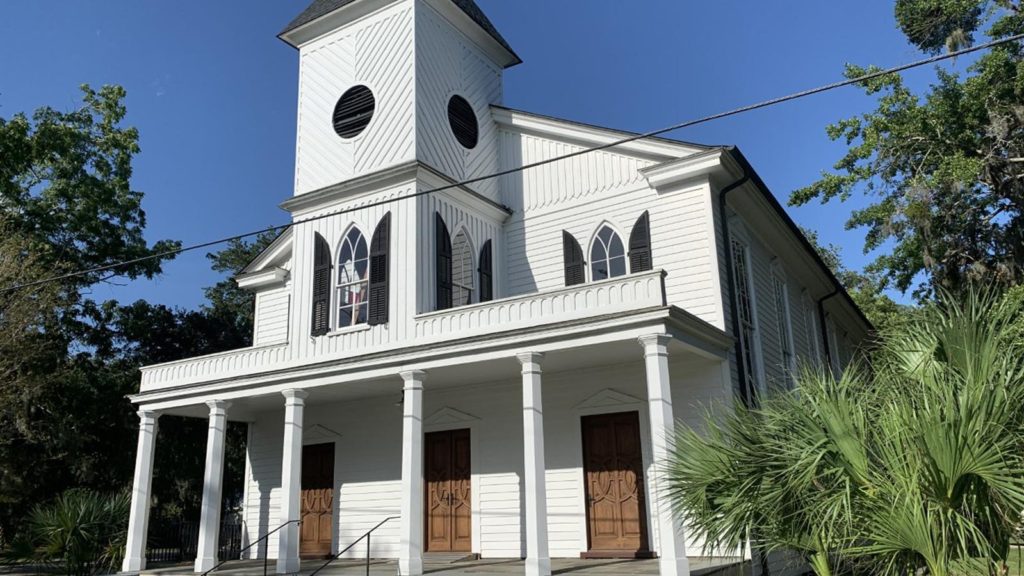
Here’s an old white church that we hope you can identify. Where is it? What is it? What’s its importance? Send your name and hometown – along with your guess – to feedback@statehousereport.com.
 Only one reader correctly identified the last mystery, “Another white, wooden building.” Congrats to Pat Keadle of Wagener who identified it as the original building of the Back Swamp School, built around 1843.
Only one reader correctly identified the last mystery, “Another white, wooden building.” Congrats to Pat Keadle of Wagener who identified it as the original building of the Back Swamp School, built around 1843.
We admit this was a tricky mystery, especially since the replacement school was the previous week’s mystery. Bill Segars of Hartsville sent us this photo of the original building, which now is located about a half mile from the newer – but still old – school in Florence County.
>> Send us a mystery picture. If you have a photo that you believe will stump readers, send it along (but make sure to tell us what it is because it may stump us too!) Send to: feedback@statehousereport.com and mark it as a photo submission. Thanks.
- ORDER NOW: Copies are in Lowcountry-area bookstores now, but if you can’t swing by, you can order a copy online today.
- Now available as an e-book!
ABOUT STATEHOUSE REPORT
Statehouse Report, founded in 2001 as a weekly legislative forecast that informs readers about what is going to happen in South Carolina politics and policy, is provided to you at no charge every Friday.
- Editor and publisher: Andy Brack, 843.670.3996
Donate today
We’re proud to offer Statehouse Report for free. For more than a dozen years, we’ve been the go-to place for insightful independent policy and political news and views in the Palmetto State. And we love it as much as you do.
But now, we can use your help. If you’ve been thinking of contributing to Statehouse Report over the years, now would be a great time to contribute as we deal with the crisis. In advance, thank you.
Buy the book
Now you can get a copy of editor and publisher Andy Brack’s We Can Do Better, South Carolina! ($14.99) as a paperback or as a Kindle book ($7.99). . The book of essays offers incisive commentaries by editor and publisher Andy Brack on the American South, the common good, vexing problems for the Palmetto State and interesting South Carolina leaders.
More
- Mailing address: Send inquiries by mail to: P.O. Box 21942, Charleston, SC 29413
- Subscriptions are free: Click to subscribe.
- We hope you’ll keep receiving the great news and information from Statehouse Report, but if you need to unsubscribe, go to the bottom of the weekly email issue and follow the instructions.
- Read our sister publication: Charleston City Paper (every Wednesday in print; Every day online)
- © 2022, Statehouse Report, a publication of City Paper Publishing, LLC. All rights reserved.
















 We Can Do Better, South Carolina!
We Can Do Better, South Carolina!